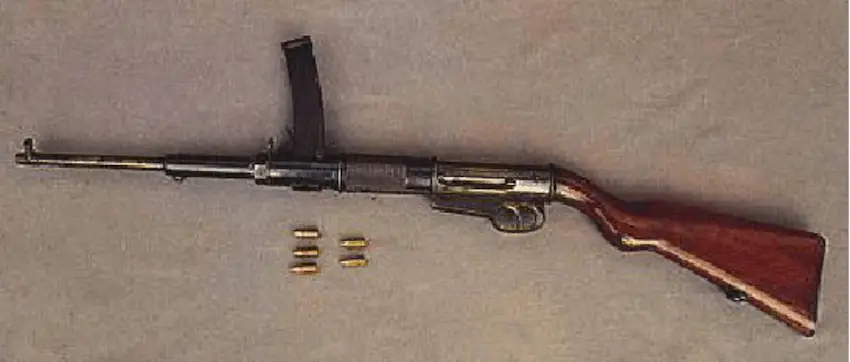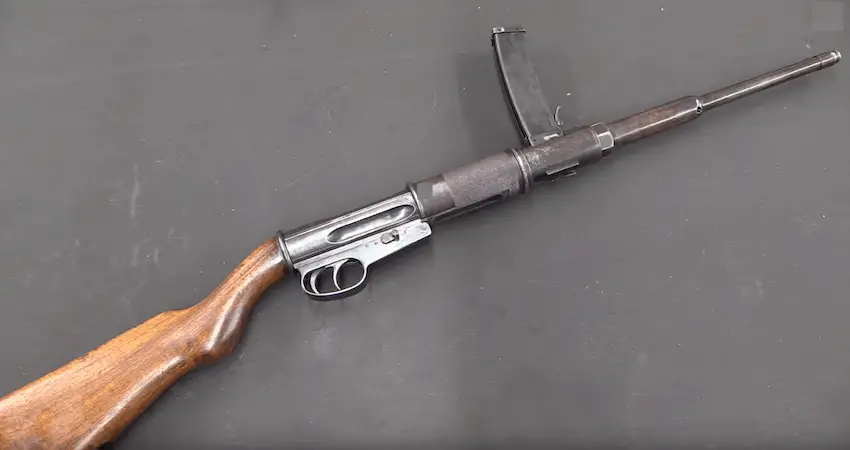Background on the OVP 1918
Italy was one of the first countries to utilize the machine gun in World War One. The Officine Di Villar Perosa (OVP) M1915 Glisenti 9mm was a machine gun that utilized double barrels capable of firing at a very high rate. The M1915 saw action on aircraft, motorcycles and other platforms. The original OVP M1915 proved to be fairly inaccurate but had a sound design. Following the Great War, OVP went to work to design a true submachine gun based on the original M1915. This evolved into the OVP 1918 and it retained many of the same mechanisms of the OVP M1915 but in a carbine-type submachine gun.

OVP M1918 submachine gun.
Function
The M1918 retained the rifle stock and dual trigger design. It had a delayed blowback and selective system. The rear trigger fired single shots and the forward trigger fired fully automatic. The weapon is charged in a similar fashion as that of a shotgun. To charge the weapon, one must pull back on the knurled sliding sleeve immediately aft of the magazine receiver. The line of sight is located on the left of the magazine receiver for aiming purposes. The top-mounted magazine holds 25 rounds and fires 900 rounds per minute in fully automatic. The weapon weighed 8 pounds and chambered for a 9 mm by 19 mm Glisenti cartridge.

Officine Di Villar Perosa M1918. Image credit: Forgotten Weapons.
Service
The weapons entered service in 1918 and saw action in the Abyssinian War and in North Africa. Although production continued into 1941, it had largely been replaced by the Beretta M1918, which is an improved version of the OVP 1918 design.
Specifications
| Model | OVP M1918 |
|---|---|
| Caliber | 9 mm |
| Barrel | 6 grooves with right-hand twist |
| Length | 35.5 inches (902 mm) |
| Barrel Length | 11 inches (279 mm) |
| Weight | 8 lbs 1 oz (3.7 kg) |
| Feed System | 25 round detachable box magazine |
| Rate of Fire | 900 RPM (Cyclic) |
| System of Operation | Delayed Blowback, Selective Fire |
